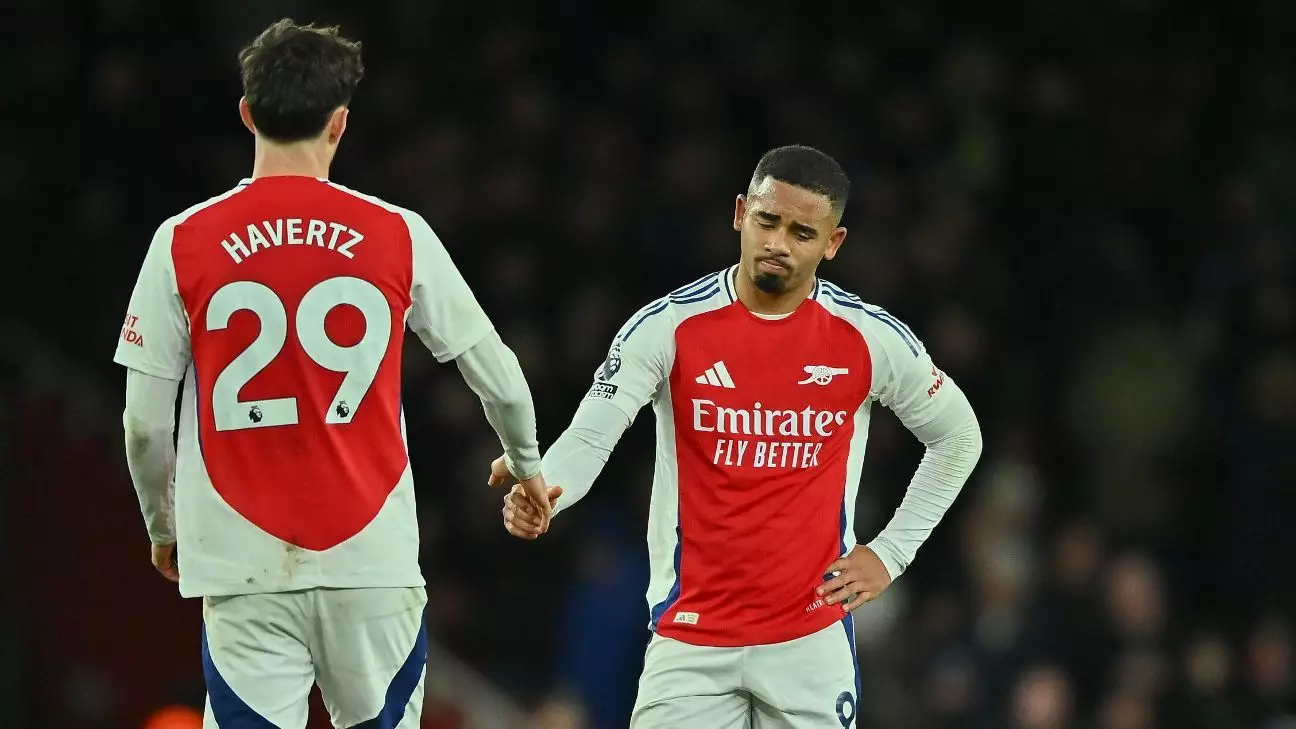Arsenal’s recent draw against Everton revealed concerns that extend far beyond a single match. With a 0-0 result, the Gunners demonstrated a lack of offensive spark despite having key players like Martin Ødegaard and Bukayo Saka on the pitch. This performance has caused fans and analysts alike to rethink the club’s strategy—specifically regarding its approach to the upcoming January transfer market.
Mikel Arteta’s gaffes and decisions have come under scrutiny as the team showcased a blend of skill and disorganization. Arsenal fans are left questioning whether the resources at the club’s disposal are sufficient to navigate title ambitions effectively. The club’s decision not to act boldly in the transfer window, even in the face of a perceived opportunity, raises eyebrows. While Manchester City appears set to reinforce their squad amid their struggles, Arsenal seems reticent to shake up their roster unless absolutely necessary, prioritizing internal improvements over external acquisitions.
Ødegaard, Saka, and a well-practiced set-piece strategy have certainly delivered results in the past, allowing the Gunners to grind out wins. However, on occasions such as the Everton match, these elements inadequately addressed the need for dynamic playmakers capable of breaking through tightly packed defenses. The reliance on a handful of stars exposes vulnerabilities and raises questions about the squad’s depth.
Further complicating the issue is the physical condition of key players. Declan Rice’s recurring injury was mentioned as a factor in the tactical rearrangements Arteta made during the game. Taking Ødegaard off the pitch seemed particularly contentious, as he is Arsenal’s main creative force. Inserting a less seasoned player such as Ethan Nwaneri in his place—especially during a high-stakes clash where experience can mean the difference—seemed an ambitious risk. In hindsight, such a gamble only drew criticism, underscoring the need for veteran presence in decisive matches.
The substitutions, though perhaps well-intentioned, rendered Arsenal somewhat disjointed. As the clock wound down, the team shifted personnel with the hope of rejuvenating their attack, yet this resulted in a tactical muddle. The introduction of Gabriel Jesus and Thomas Partey, alongside the move of Jurrien Timber to left-back, further complicated the Gunners’ on-field coordination.
Everton presented a formidable challenge through their organized, conservative gameplay, which further exposed weaknesses in Arsenal’s setup. While teams often rotate formations and adapt to fit their strategies against top clubs, Everton’s deep defense capitalized on Arsenal’s inability to adapt effectively. The Gunners struggled to maintain the aggressive forward momentum that typically characterizes their playstyle, failing to convert several key opportunities.
The preference for a young squad risks stagnating performances against teams that prioritize defensive solidity. With players like Raheem Sterling not even seeing the pitch, the question arises: Can Kasper Schmeichel or other seasoned players prove critical in such moments? The need for new blood is increasingly compelling as performances have been inconsistent, urging the club to rethink its transfer strategy.
Arteta has expressed confidence in the high-scoring potential of his squad, noting that they scored 91 goals last season, the highest in Premier League history for the club. However, the current reality is stark, manifesting lapses in quality and the failure to capitalize on goal-scoring chances when they arise. The pressing need for additional talent may soon morph from a matter of solidifying the roster to one of survival for the season’s goals.
A robust January transfer window is not merely an option but may soon become a necessity if the team’s struggles persist. While football’s unpredictability often showcases miraculous recoveries, without investments—for example, playmakers who can inject creativity under pressure—Arsenal may find themselves in a precarious position, at risk of falling further behind in the title race.
The clarity emerging from Arsenal’s draw against Everton is that complacency, whether in tactics or recruitment, is not an option. For the Gunners to sustain any title challenge, decisive actions must be taken when the transfer window opens. The football world is watching; whether Arsenal can muster the resolve to adapt, reinforce, and ultimately triumph in the face of adversity will dictate their fate this season. Adaptation, clarity in strategy, and courageous decisions could transform matter into magic—or risk leaving them in the shadows as contenders falter.

